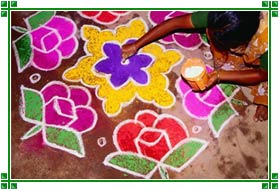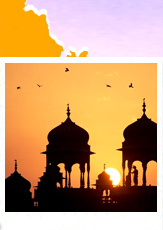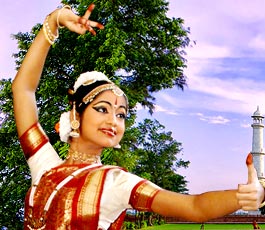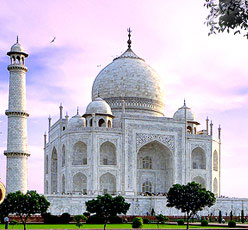 The harvest festival of Tamil Nadu marks the
withdrawal of the southeast monsoons and happy days of reaping of the
harvest. Basically a rural festival, it is celebrated in the month of
Thai (that falls in January) for four days. The two most popular legends
associated with Pongal associates the first day of the festival to the
event when Lord Krishna lifted the gigantic Govardhan Mountain on his
little finger to shelter people from heavy rains and wrath of the Rain
God, Indra. The third day of Pongal is said to be the day for animals as
it was on this day that Lord Shiva ordered Nandi Bull to forever help
humans with their farming activities as a punishment for mixing up the
message he sent to the people of Earth. The most popular festival of
Tamil Nadu, the month of Pongal is considered very auspicious for
marriages and other kinds of activities. During the festival, Sun God is
worshipped as a sustainer of life on Earth.
The harvest festival of Tamil Nadu marks the
withdrawal of the southeast monsoons and happy days of reaping of the
harvest. Basically a rural festival, it is celebrated in the month of
Thai (that falls in January) for four days. The two most popular legends
associated with Pongal associates the first day of the festival to the
event when Lord Krishna lifted the gigantic Govardhan Mountain on his
little finger to shelter people from heavy rains and wrath of the Rain
God, Indra. The third day of Pongal is said to be the day for animals as
it was on this day that Lord Shiva ordered Nandi Bull to forever help
humans with their farming activities as a punishment for mixing up the
message he sent to the people of Earth. The most popular festival of
Tamil Nadu, the month of Pongal is considered very auspicious for
marriages and other kinds of activities. During the festival, Sun God is
worshipped as a sustainer of life on Earth.TThe first day or 'Bhogi' is celebrated on January 13, the second day or 'Pongal' on January 14, the third day or 'Mattu Pongal' on January 15 and finally the fourth day or 'Thiruvalluvar Day' on January 16 every year. The last day is associated with the great Tamil author known as Thiruvalluvar who composed 1,330 verses of 'Thirukkural' on all the aspects of life. Pongal is so named after the rice pudding made up of freshly harvested rice, milk and jaggery. It is the New Year festival of the State and hence is associated with cleaning and burning of the rubbish from the past. 'Kolams' (Rangoli) drawn with rice flour to feed the insects in the front yards of the houses, new clothes, adorning cattles with beads, bells and flowers and painting and capping their horns with metals, delicious traditional cuisines, typical style of worshipping rituals and a procession taken out from the Kandaswamy Temple in Chennai along with the bull fights or Jellikattu in Madurai, Tanjore and Tiruchirrapalli and community meals are the chief highlights of Pongal.









